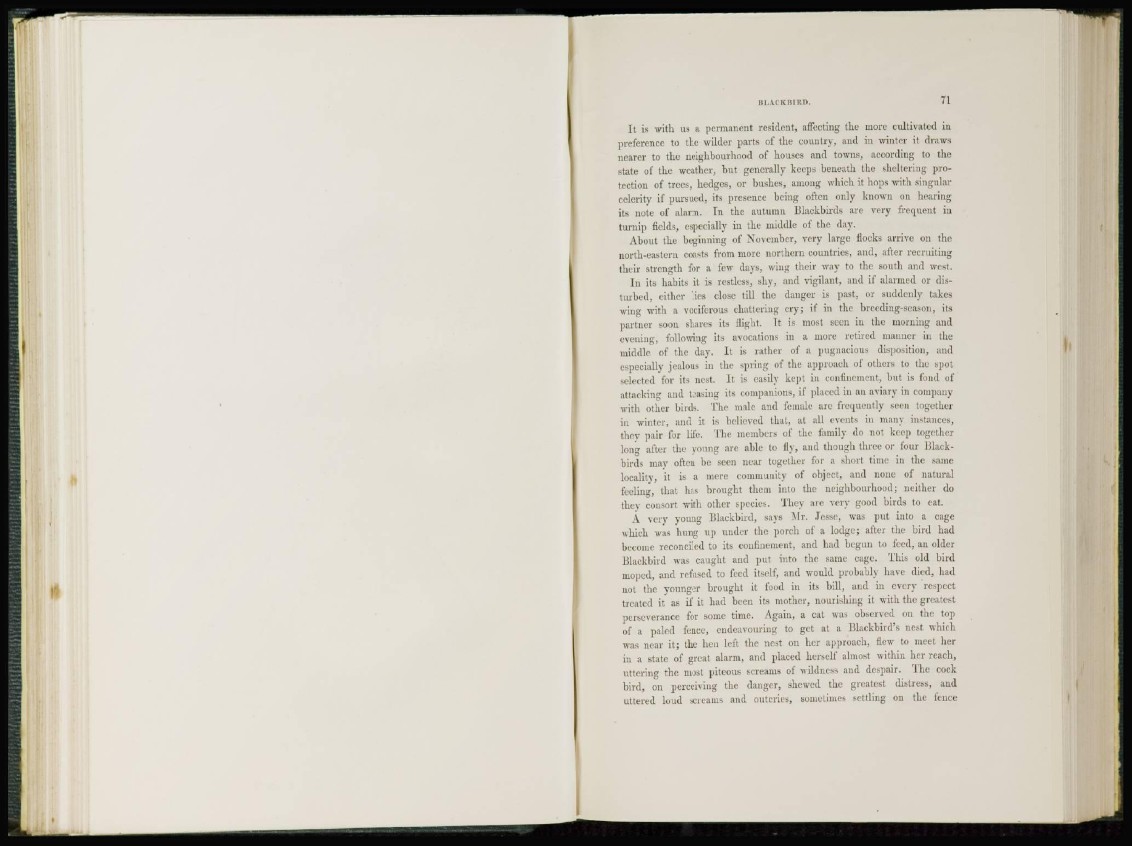
I t is with us a permanent resident, affecting the more cultivated in
preference to the wilder parts of the country, and in winter it draws
nearer to the neighbourhood of houses and towns, according to the
state of the weather, but generally keeps beneath the sheltering protection
of trees, hedges, or bushes, among which it hops with singular
celerity if pursued, its presence being often only known on hearing
its note of alarm. In the autumn Blackbirds are very frequent in
turnip fields, especially in the middle of the day.
About the beginning of November, very large flocks arrive on the
north-eastern coasts from more northern countries, and, after recruiting
their strength for a few days, wing their way to the south and west.
I n its habits it is restless, shy, and vigilant, and if alarmed or disturbed,
cither lies close till the danger is past, or suddenly takes
wing with a vociferous chattering cry; if in the breeding-season, its
partner soon shares its flight. It is most seen in the morning and
evening, following its avocations in a more retired manner in the
middle of the day. It is rather of a pugnacious disposition, and
especially jealous in the spring of the approach of others to the spot
selected for its nest. It is easily kept in confinement, but is fond of
attacking and teasing its companions, if placed in an aviary in company
with other birds. The male and female are frequently seen together
in winter, and it is believed that, at all events in many instances,
thev pair for life. The members of the family do not keep together
long after the young are able to fly, and though three or four Blackbirds
may often be seen near together for a short time in the same
locality, it is a mere community of object, and none of natural
feeling, that has brought them into the neighbourhood; neither do
they consort with other species. They are very good birds to cat.
A very young Blackbird, says Mr. Jesse, was put into a cage
which was hung up under the porch of a lodge; after the bird had
become reconciled to its confinement, and had begun to feed, an older
Blackbird was caught and put into the same cage. This old bird
moped, and refused to feed itself, and would probabh have died, had
not the younger brought it food in its bill, and in every respect
treated it as if it had been its mother, nourishing it with the greatest
perseverance for some time. Again, a cat was observed on the top
of a paled fence, endeavouring to get at a Blackbird's nest which
was near it; the hen left the nest on her approach, flew to meet her
in a state of great alarm, and placed herself almost within her reach,
uttering the most piteous screams of wildness and despair. '1 he cock
bird, on perceiving the danger, shewed the greatest distress, and
uttered loud screams and outcries, sometimes settling on the fence